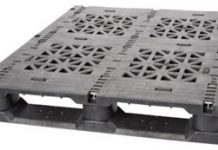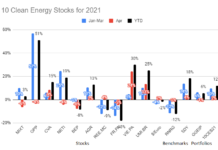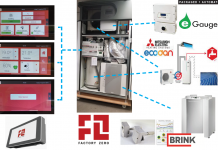Chris Williams
According to the Solar Energy Industry Association (SEIA), in 2010 solar was the fastest growing industry in the US, growing at 67%. The geothermal heat pump (GHP) industry still grew quickly compared to the whole economy, but it only grew at a modest 32% compared to solar.
According to Solar Buzz, at the end of 2009, the global solar market was $38.5 billion with the US installing nearly 8% solar, or $3.1 billion of the world market.

Source: Solarbuzz 2010 Marketbuzz
According to PMGO, an industry research firm,
“The total market for U.S. GHPs in 2009 is estimated to be about $3.7 billion dollars, including equipment and installation cost (and not reduced by government or other incentives). The dealer who sells the equipment typically installs it. PMG expects a growth rate of 32% to continue for a few years. By 2013, PMG projects the U.S. geothermal heat pump market to be in excess of $10 billion.”
The solar market and the geothermal heat pump market in 2009 were essentially the same size; however, while the solar PV industry is growing much quicker, both have strong positive outlooks.
Will the growth of the geothermal industry continue for the next 10, 15, 20 years, and can we invest in public equities like we can in the solar pv industry to benefit from this growth?
In this article, I will walk through an analysis of
1. What is driving the growth if the GHP industry
2. Why property owners and utilities are adopting GHPs
3. The market segments that are adopting geothermal the fastest
4. The bottleneck’s to GHP continued and faster growth
5. Possible Investment targets within GHP
6. The 2 best opportunities for investment in public equities.
For today’s article, we’ll focus on section 1 through 3.
1. What’s driving the GHP industry?
As good investors, let’s walk through a little industry analysis to get a sense for the geothermal heat pump space.
Geothermal is a reliable energy source and a solid investment that is more broadly applicable than solar because the technology is not susceptible to state policy, like solar pv. Put another way, the financial return that a GHP system provides to property owners is based more on the fundamental technology and the fuel it is displacing rather than government incentives. I’d suggest this means it is less volatile from an investment perspective than the solar pv industry.
Geothermal heat pump HVAC systems are attractive because the technology is fundamentally sound and super efficient. A typical system is between 300% to 500% efficientmeaning for every unit of energy you put in, you harvest 3 to 5 more units. To understand more, download the Geothermal Survival Kit, written by Kevin Rafferty who co-authored the ASHRAE publication, “Ground-Source Heat Pumps” – Design of Geothermal Systems for Commercial and Institutional Buildings. The Department of Energy also has some great geothermal heat pump resources. ASHRAE is an “international technical society organized to advance the arts and sciences of heating, ventilation, air-conditioning and refrigeration.” (www.ashrae.org)
2. Here’s what you need to know about customer adoption of GHP as an investor:
Geothermal heat pumps offer a number of advantages over traditional heating and cooling methods to property owners, namely they offer the following:
- Highly Reliable
- Combustion Free
- Virtually Zero Emissions
- No On-Site Contribution to Global Warming
- Local Availability (no fuel or transportation expense)
- Electric utilities generally favor GHPs because they provide a stable base demand all year
- Geothermal HVAC also very useful in gaining LEED certification all types of properties. Green building demand has been skyrocketing in recent years and GHPs can provide a significant number of points in the rating system. Learn more about Geo and LEED in this whitepaper: Let Geo LEED The Way
3. GHP Are Becoming the Norm in Some Applications
All day long at HeatSpring, we’re talking to contractors, HVAC professionals and drillers who are taking our IGSPHA geothermal training program because more and more of their customers are asking about geothermal. Many of our alumni have weathered the recession by investing in training and moving their business into this new segment. The residential market is the strongest in new construction, where the systems can be financed from day one. However, the retrofit market is still strong, especially if the building has an old furnace or leaky building envelope. Also, with large commercial or government projects, geothermal is becoming the norm because upfront costs are less of a consideration (like with residential customers) and lifetime savings and NPV are more important.
Chris Williams is an IGSHPA certified geothermal installed and works with HeatSpring Learning Institute delivering world-class IGSHPA Geothermal Training, NABCEP Solar Training, and BPI Certification training to professionals who are installing, designing or selling renewable energy systems. Sign up for their newsletter here. Chris can be reached directly at cwilliams@heatspring.com or in the twitterverse @topherwilliams
Continue reading A Guide to Geothermal Heat Pump (GHP) Investing, Part II.








